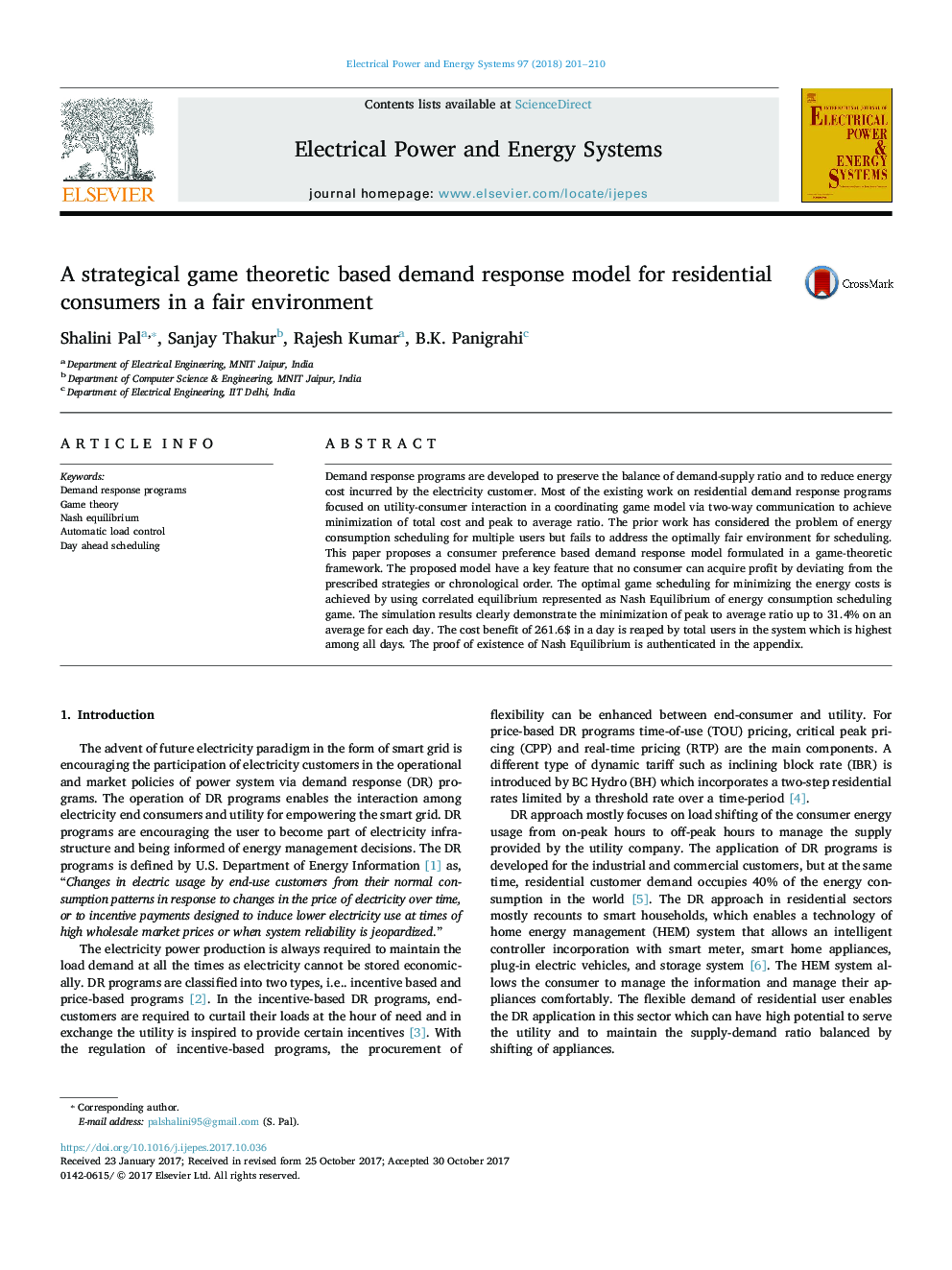| Article ID | Journal | Published Year | Pages | File Type |
|---|---|---|---|---|
| 6859469 | International Journal of Electrical Power & Energy Systems | 2018 | 10 Pages |
Abstract
Demand response programs are developed to preserve the balance of demand-supply ratio and to reduce energy cost incurred by the electricity customer. Most of the existing work on residential demand response programs focused on utility-consumer interaction in a coordinating game model via two-way communication to achieve minimization of total cost and peak to average ratio. The prior work has considered the problem of energy consumption scheduling for multiple users but fails to address the optimally fair environment for scheduling. This paper proposes a consumer preference based demand response model formulated in a game-theoretic framework. The proposed model have a key feature that no consumer can acquire profit by deviating from the prescribed strategies or chronological order. The optimal game scheduling for minimizing the energy costs is achieved by using correlated equilibrium represented as Nash Equilibrium of energy consumption scheduling game. The simulation results clearly demonstrate the minimization of peak to average ratio up to 31.4% on an average for each day. The cost benefit of 261.6$ in a day is reaped by total users in the system which is highest among all days. The proof of existence of Nash Equilibrium is authenticated in the appendix.
Related Topics
Physical Sciences and Engineering
Computer Science
Artificial Intelligence
Authors
Shalini Pal, Sanjay Thakur, Rajesh Kumar, B.K. Panigrahi,
